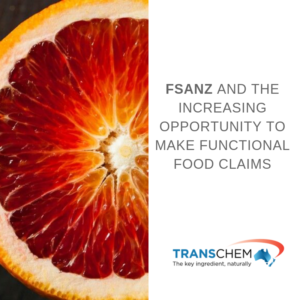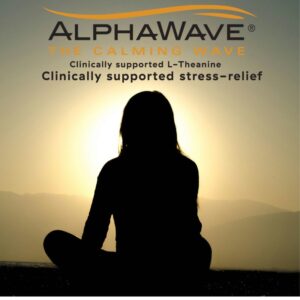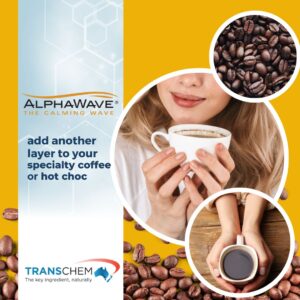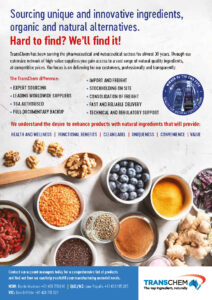Maximising the marketing potential of an ingredient that covers both the functional foods and complementary medicines spaces can be challenging, requiring experience and a detailed knowledge of Food Standards Australia and New Zealand (FSANZ).
With a broader reading of FSANZ codes, an orange suddenly becomes more than a fruit bowl staple; in a general sense, an orange also supports the human immune system, aids iron absorption, supports healthy blood vessel function, reduces tiredness and fatigue, and is a great source of Vitamin C.
Most countries have a regulatory body governing food standards and regulations. Countries with no legislated food standards use Codex by default. Australia’s food standards are defined by FSANZ, an independent statutory agency for which legislation is determined by the federal government and compliance is monitored by individual state and territory authorities. New Zealand’s food standards code is monitored by the Ministry for Primary Industry and its public health units.
As a legislative body FSANZ has, necessarily, prescriptive standards and codes relating to health and nutrition claims. While such rigid standards can seem daunting to brands wanting to market new products, FSANZ’s prescriptive standards relating to health claims also enable brands to educate the public about functional food products as well as promote them.

Food businesses and brands that choose to market a final food product can, in a general sense, make health claims for those products provided they are able to base their claims on one of more than 200 pre-approved health relationships specified in the FSANZ standards, or they can self- substantiate a food relationship in accordance with the FSANZ standards.
Sounds daunting? It can be.
But did you know that health claims can be made for a functional food as well as a Therapeutic Goods Administration (TGA) approved complimentary medicine? And, ironically, it’s the stringency of the FSANZ codes that’s the enabler.
Harnessing the reality of legislative obligations of the health product claims of functional foods as well as products listed under the TGA is a TransChem speciality. TransChem’s industry and academically trained team assists clients capitalise on claims, meet FSANZ food labelling compliance obligations and successfully market innovative functional food ingredients; the information and support the TransChem team offers enables brands, as well as end consumers, make better product content choices.
TransChem continues to develop its portfolio of ingredients that can support compliance in the functional foods area. It currently has more than 20 different food and beverage products from hundreds of globally sourced ingredients. TransChem’s forensically detailed investigation of potential raw materials to add to its portfolio of innovative, ethically sourced ingredients continues at SupplySide West (6-10 November, 2018) in Las Vegas.
TransChem’s expertise in this field means its team can guide clients through the health and marketing claims not only in the complementary medicine sphere but also in the functional foods space, meaning a product containing listed medicines in the complementary medicine sphere may also leverage and promote health claims.
Just like, in a general sense, the humble orange.







